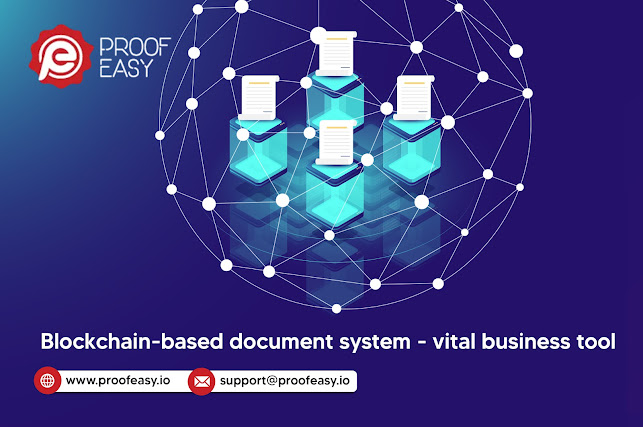How Much Value Does A Certificate of Insurance Hold in Business?
Whether you're a contractor, a
business owner, or a client, understanding the significance of a Certificate of
Insurance is vital. Afterall, this piece of document is responsible for
maintaining transparency and security in your dealings.
The security of these documents is
extremely important. A trusted certification maker platform ensures the document is generated securely and issued to the
rightful party. Let’s explore more about them and the importance they hold.
What is a Certificate of Insurance?
A Certificate of Insurance (COI) is
a document that indicates proof of insurance
coverage for a business, individual, or contractor. It is provided by an
insurance company that summarizes the details of an insurance policy.
It serves as proof that has the
necessary insurance coverage in place to protect against potential claims,
liabilities, or damages. The COI acts as evidence that insurance exists and
outlines key information, including:
●
Policyholder's name and contact
information
●
Insurance provider's name
●
Policy number
●
Coverage type (general liability,
workers' compensation, etc.)
●
Coverage limits and effective dates
●
Expiration date
This document is often requested in
industries where liability risks are high, providing peace of mind to all
parties involved.
Why Is a Certificate of Insurance Important?
Risk Mitigation and Liability Protection
One of the primary purposes of a COI
is to reduce the risks involved in business transactions. Whether you're hiring
a contractor or entering a lease agreement, the COI ensures that the party
you're working with has adequate insurance coverage.
This protection can prevent costly
lawsuits and damages if accidents, injuries, or property damage occur.
Compliance with Legal and Contractual Requirements
Many businesses and industries
require proof of insurance before starting work or entering a partnership.
Government contracts, leases, and client agreements often stipulate that the
involved parties must have specific insurance policies in place.
Failure to provide a COI may result
in contract termination or delayed projects. The COI thus helps businesses
comply with legal and contractual obligations.
Building Trust and Credibility
Trust is key when it comes to the
business world. Providing a COI fosters confidence between parties as it
demonstrates a commitment to professionalism and accountability.
The document assures clients,
customers, or partners that you are financially secure and prepared to handle
unforeseen incidents. For small businesses and freelancers, a COI can serve as
a tool to build trust and attract potential clients.
Proof of Coverage in the Event of a Claim
A COI can streamline the claims
process by offering clear proof of coverage. Should an incident occur that
leads to a claim, the COI helps all parties quickly confirm about the claim
coverage.
This speeds up the resolution
process and reduces potential conflicts or confusion about insurance coverage.
There are many insurance companies that utilize an online certificate maker to generate this document and issue it to
the insurance holder.
Safeguarding Your Own Interests
If you're working with
subcontractors or other service providers, it's critical to verify that they
have their own insurance in place. This is an essential step to avoid potential
liability.
A COI protects you from being held
responsible for accidents, damages, or injuries caused by third parties. You
can safeguard your business from unexpected financial burdens with the document
in place.
Key Industries that Rely on Certificates of Insurance
Several industries heavily depend on
COIs and insurance companies that use digital certificate generator. Some of them are:
Construction and Contracting:
General contractors, subcontractors, and suppliers often require COIs to
confirm coverage for potential property damage, injuries, or accidents on the
job site.
Real Estate and Property Management:
Landlords and property managers frequently ask for COIs from tenants,
contractors, or maintenance teams to ensure liability protection.
Healthcare: Medical professionals and
facilities may require COIs to prove they have malpractice or general liability
insurance, reducing risk in a high-stakes industry.
Events and Entertainment: Organizers
of events, concerts, or film shoots often require COIs from vendors,
performers, or production teams to confirm insurance coverage for accidents or
damage that may occur during events.
Common Misconceptions About Certificates of Insurance
Despite the importance of COIs, some
misconceptions can lead to misunderstandings about their role.
●
A COI is not a policy:
It’s vital to remember that a Certificate of Insurance is merely a summary of
coverage. It is not a substitute for an actual insurance policy. Always review
the policy for full details.
●
A COI does not guarantee ongoing
coverage: While the document verifies
coverage at the time it’s issued. It doesn’t necessarily confirm that the
policyholder will maintain coverage throughout the contract period. It's
essential to check expiration dates and request updated certificates if
necessary.
●
Unlimited protection is not
guaranteed: The COI lists specific coverage
limits, and any incidents or claims that exceed those limits will not be
covered. Knowing the limits of a policy is just as important as ensuring that
coverage exists.
Conclusion
A Certificate of Insurance plays a
significant role in protecting businesses, contractors, and clients from
unforeseen risks. From ensuring compliance with legal requirements to
safeguarding against liabilities, the COI is a valuable tool.
If you are interested in ensuring
the certification maker used to
generate these documents are secure and trustworthy then choose a powerful
platform to help you verify. ProofEasy is one such service provider that offers
users to check the authenticity of these certificates and solutions to create these
documents securely. Connect with them to learn more.




Comments
Post a Comment